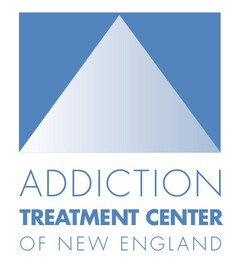Alternative Recovery at a Phenomenal Addiction Treatment Center
Alternative Recovery at a Phenomenal Addiction Treatment Center
Blog Article
Navigating the Journey of Cleansing in the Comprehensive Dependency Therapy Program
The procedure of cleansing holds a considerable function in breaking the physical reliance on compounds and preparing the individual for the succeeding phases of treatment. As people grapple with the obstacles of withdrawal symptoms and the unpredictabilities that lie in advance, having a robust assistance and an organized strategy system in location comes to be paramount.
Relevance of Detoxing in Recovery

Detoxing sets the foundation for the rest of the addiction treatment program by preparing the person for additional treatment and counseling. By cleaning the body important that have been clouding judgment and influencing actions, detox enables patients to approach their recuperation with a clearer mind and more powerful emphasis.
In addition, detoxification aids in handling the possibly severe withdrawal signs that may emerge when medicine or alcohol usage is stopped. Physician very closely keep track of clients throughout detox to ensure their security and supply needed assistance. Through this process, people can begin their trip towards soberness with a maintained physical and psychological state, raising the likelihood of an effective recuperation.
Comprehending the Detoxification Refine
Detoxing, an essential part of addiction therapy programs, includes a structured process intended at securely removing hazardous materials from the body to facilitate a successful recuperation trip. The detox process commonly starts with an analysis to evaluate the individual's substance use background, physical health and wellness, and psychological wellness. This analysis aids health care specialists establish one of the most ideal detoxification strategy tailored to the individual's demands.
Throughout detox, the body experiences withdrawal as it readjusts to the absence of the substance. Withdrawal signs differ relying on the kind of material made use of, the period of usage, and specific factors. Clinical supervision during detoxification is essential to handle withdrawal signs and symptoms and ensure the person's safety and security and convenience.

Managing Withdrawal Signs And Symptoms

Medications may be utilized to alleviate specific withdrawal signs and symptoms and reduce pain. Medicines like methadone or buprenorphine can assist take care of opioid withdrawal symptoms, while benzodiazepines might be used for alcohol withdrawal. It is essential for doctor to thoroughly monitor the individual's feedback to these drugs to guarantee their safety and security and efficiency.
Along with pharmacological interventions, encouraging treatments such as counseling, peer assistance teams, and alternative methods like mindfulness reflection or yoga exercise can assist individuals deal with the psychological and emotional obstacles of withdrawal. By attending to withdrawal symptoms adequately, doctor can boost the cleansing experience and assistance people on their journey to healing.

Assistance Systems During Detox
Assistance systems play an essential role in providing psychological and social support to individuals undergoing detoxification in dependency therapy programs. Throughout the detox process, people commonly experience a variety of physical and psychological withdrawal signs and symptoms, making this stage difficult - Addiction Treatment Center. Having a strong assistance system in place can considerably affect the individual's capacity to browse through detoxification successfully
Assistance teams supply a platform for people to attach with others that are going directory through similar experiences, offering a sense of neighborhood and shared understanding. Healthcare specialists, including specialists, doctors, and therapists, play a critical duty in monitoring the individual's progress, giving clinical assistance, and supplying guidance throughout the detox process.
Looking Ahead: Life After Detox
Having successfully completed the cleansing stage, individuals in addiction therapy programs now concentrate on planning for the difficulties and opportunities that lie in advance in their trip towards recovery. Life after detox notes an important change period where people need to remain to improve the progress made throughout detoxification to keep their sobriety. It is vital for individuals to recognize that the journey in the direction of recuperation is recurring and requires commitment, dedication, and a readiness to accept adjustment.
One trick aspect of life after detoxification is the advancement of dealing mechanisms to handle triggers and cravings that might occur. This may entail finding out new abilities, such as mindfulness techniques, cognitive-behavioral techniques, and anxiety monitoring approaches, to navigate difficult scenarios go to my site without resorting to substance use. In addition, people are motivated to proactively participate in recurring therapy, assistance teams, and aftercare programs to strengthen their assistance network and receive guidance as they browse the intricacies of life post-detox.
Final Thought
Recognizing the detox process and handling withdrawal symptoms are essential steps in the direction of healing. It is essential to recognize the importance of detox in the process of getting rid of addiction and relocating towards a life of soberness.
Medical guidance during detoxification is vital to take care of withdrawal signs and symptoms and make sure the person's security and convenience.
By recognizing the detoxification procedure and its significance in damaging the cycle of dependency, people can get started on a course in the direction of lasting recuperation.
During the detox procedure, individuals frequently experience a variety of emotional and physical withdrawal signs and symptoms, making this stage challenging. Health care specialists, consisting of doctors, therapists, and therapists, play an important role in checking the person's progress, providing medical assistance, and supplying advice throughout the detoxification process.
Life after detox marks a crucial change duration where people should proceed to build on the development made during detox to keep their sobriety.
Report this page